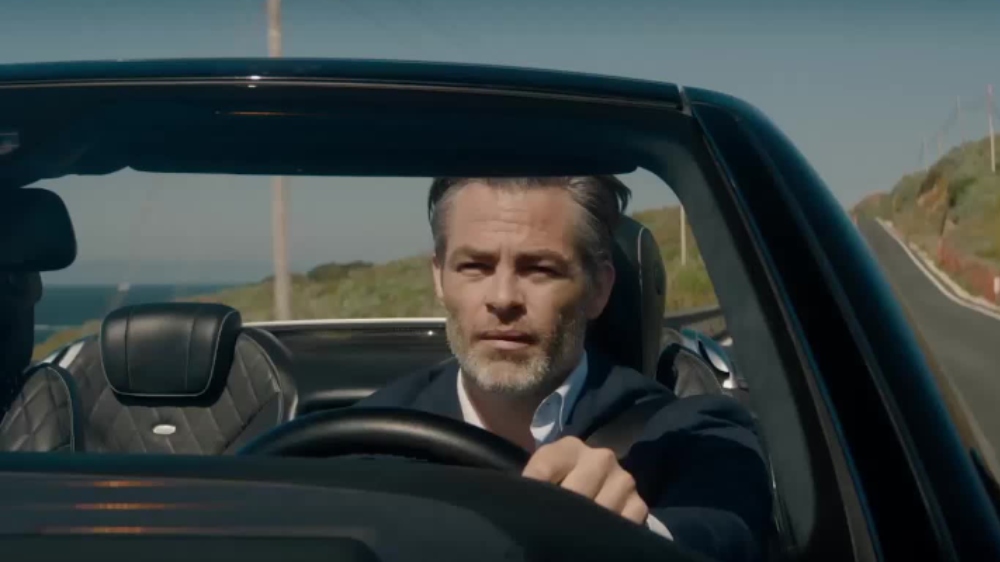
I first heard of Danish director Janus Metz when he made the 2010 war documentary Armadillo, which featured striking poster art depicting a hand grenade with the veins and ventricles of a human heart. It was the kind of poster that made you want to see the movie. It was seven years before Metz made his feature directorial debut with Borg vs. McEnroe, the tennis drama starring Shia LaBeouf, and now, five years later, he returns with his second narrative feature, All the Old Knives, which is now streaming on Amazon Prime Video.
Chris Pine and Thandiwe Newton star in Metz’s sexy spy thriller, which is based on the book of the same name by Olen Steinhauer, who also wrote the script. The duo play CIA operatives and former lovers who reunite for dinner in Carmel-by-the-Sea six years after a mission in Vienna left a fellow agent compromised. Oscar-nominated actors Laurence Fishburne and Jonathan Pryce co-star in the film, which plays like a John le Carré movie as directed by Alfred Hitchcock.
Metz had already formed a relationship with Amazon thanks to his work on ZeroZeroZero, which is among the best shows the streamer has produced thus far, and with All the Old Knives, he has positioned himself well for future gigs, though he’s taking some time to be with his family at the moment, as he and his wife have an eight-week-old baby at home.
Below the Line recently spoke to Metz about casting matters, Covid protocols, working with an intimacy coordinator during the shoot, and why he wanted to work with a female DP (Charlotte Bruus Christensen) on this film. Please enjoy our chat below:
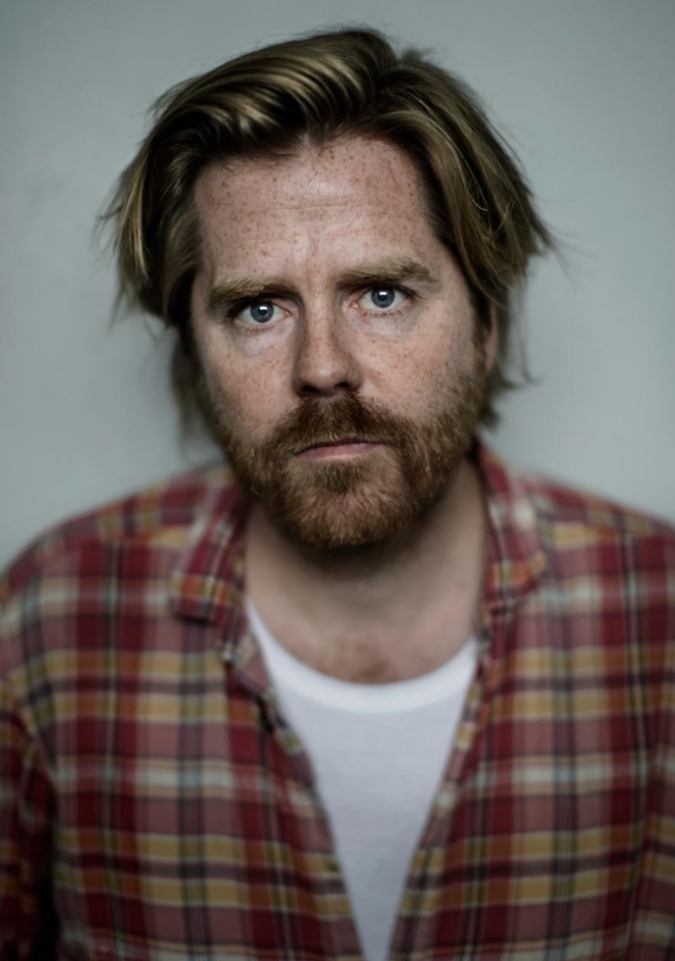
Below the Line: How did this project first come across your desk?
Janus Metz: Well, as many scripts do, it landed on my table via my agent who kind of read it and thought it might be something for me. I eventually got around to reading it and I thought, ‘wow.’ I’d never seen a story like this before, it’s like a perfect spy thriller interwoven with this great love story and I thought that was very exciting. Chris Pine was already attached at that time, and I liked the idea of Chris as Henry Pelham because I think he can be the charismatic sort of guy that you want to see Henry as, but he can also kind of give you that very dark streak that Henry Pelham also has as a character, so that sort of range in his acting I really thought was good, and I had a conversation with Chris and we hit it off and we both loved the story and for the same reasons, and from there it just went on.
BTL: Did you have to audition a bunch of actresses for the female lead or did Thandiwe come to mind right away?
Metz: Well, there were a couple of names that we discussed and Thandiwe was one of them. I remember talking to Chris about this list and we discussed Thandiwe. I liked her because I think there’s a warmth to her, and she’s a mother and she’s a mature woman, [and] I liked to see that in Celia because I think you could very easily create Celia as a stereotype, we’ve seen that in spy movies before, this kind of like femme fatale, cold, enigmatic woman, which is almost like a cliche of the genre, and I thought Thandiwe could be something else. And I remember Chris saying in one of our first conversations that he thought she was very soulful and that really struck a chord. And then I spoke to Thandiwe… I had a couple of conversations with other actresses who also would’ve been great and were interesting, and interested, but when I spoke to Thandiwe, she really defended Celia as a character and she really saw the script from her perspective in a very convincing kind of way, so once I had that experience, I just kind of knew that she’d be great for it, and when the two of them met, there was a very sort of palpable energy between them which I knew was going to be great for the story.
BTL: Did they have to chemistry test for you?
Metz: I never did sort of a chemistry reading between them, it was just, you know sometimes as a director, you just have to follow your intuition, and my intuition was very kind of strong on this one and they wanted to work together. Chris thought she was a great choice and she loved the idea of working with him.
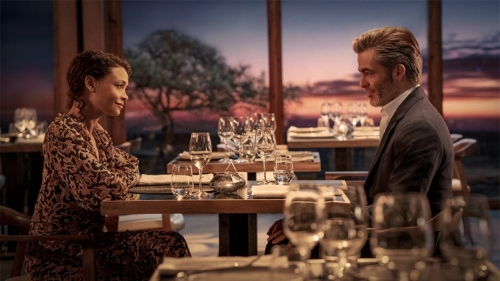
BTL: Did you shoot on location in Vienna or Carmel-by-the-Sea?
Metz: We shot in Carmel-by-the-Sea, in the actual city. The restaurant itself is a studio build, but the sunset that you see is projected onto an LED screen outside the studio, and that was actually shot up by Carmel, some ways up the coast. But we needed to be able to control the environment and the light inside the restaurant, otherwise, I think the application would’ve been kind of dull. I wanted those big panoramic views of nature and this feeling that they’re meeting at the end of the world, we’re almost like, in some sort of like, Edward Hopper painting or something, with these two lonely people.
For everything that goes on in Vienna and Moscow, and in London, of course, we shot in London. So we doubled London for Vienna and we used a lot of CGI to kind of change buildings a little bit around and build a lot of things on set. The fact that we were shooting this at the height of the pandemic kind of created the necessity to do a lot of it in a studio setting because it was controllable and we could kind of live inside our own little bubble.
BTL: Yeah, I was going to ask you how the production was impacted by covid and if it threw off scheduling or presented any other problems for you.
Metz: In many ways, actually, it was part of making this production possible, because a lot of other movies kind of tanked because of Covid, and suddenly you couldn’t do these globetrotting action movies where you travel around the world and shoot in four different cities, etc. so that meant, first and foremost, that actors’ schedules really freed up and we were able to kind of slot our movie in and say well we have this studio movie and now is the time to do it, and everyone came together around that. It did incur some heavy costs on production, because of travel schedules, quarantines, testing, everyone was tested every day and the fact that we had to have all kinds of procedures in place to be able to do this and I can’t even tell you the half of it because it wasn’t on my table, it was something that production dealt with. What I felt, physically, was that everyone — except for the actors when they were acting, obviously — was wearing masks and visors, and in the long run I think it did create a sort of… it was a little less fun, because often on film sets you become one big family and you go out together at night and you have drinks and dinners etc. and all that was obviously not possible. I couldn’t even have dinner with Chris and Thandiwe, for that matter, because we didn’t wanna jeopardize anything. We couldn’t because it was also an insurance question.
BTL: I did love the contrasting color palettes and how the stuff in London is cold and grey and then the restaurant is full of these warm, amber hues, and I know you were working with a new DP on this film, Charlotte Bruus Christensen, so what can you tell me about your collaboration together and the visual look that you hoped to achieve with this film.
Metz: I mean, we had a great collaboration. I love Charlotte’s work and I also thought it would be great for me to work with a female DP on this story because the female character is so strong and I was curious to see how that would maybe free up something for the story and for Thandiwe. It’s interesting when you prep and you have all these conversations about how you want to shoot the movie — and for me, it’s always about discussing some of the bigger concepts of the film, we talk about loneliness and paranoia, and how do we visualize that and how do we make that part of the camera, like, what does the camera see.
And a great challenge of this movie is that 50 percent of it takes place at a table over dinner, so you’re in a very limited, constrained space, and a lot of it was about close-ups. How do we get closer and closer to Celia and Henry, how do we excavate the truths and the traumas that they are living with because of what happened to them? So it was a film that moved closer and closer in, and sometimes we revolve around them, so if their world is spinning out of control, we’re spinning with them, but in a very subtle way. We would never do like a commercial, flashy move, we always wanted it to be classic and reference classical spy movies, in a sense. We talked a lot about The Spy Who Came in From the Cold, we talked about Michael Clayton, Charlotte was talking a lot about Birdman [with regards to] closeups, and we talked about Edward Hopper paintings, so it was about finding a common footing for what we wanted to achieve with the cinematography.
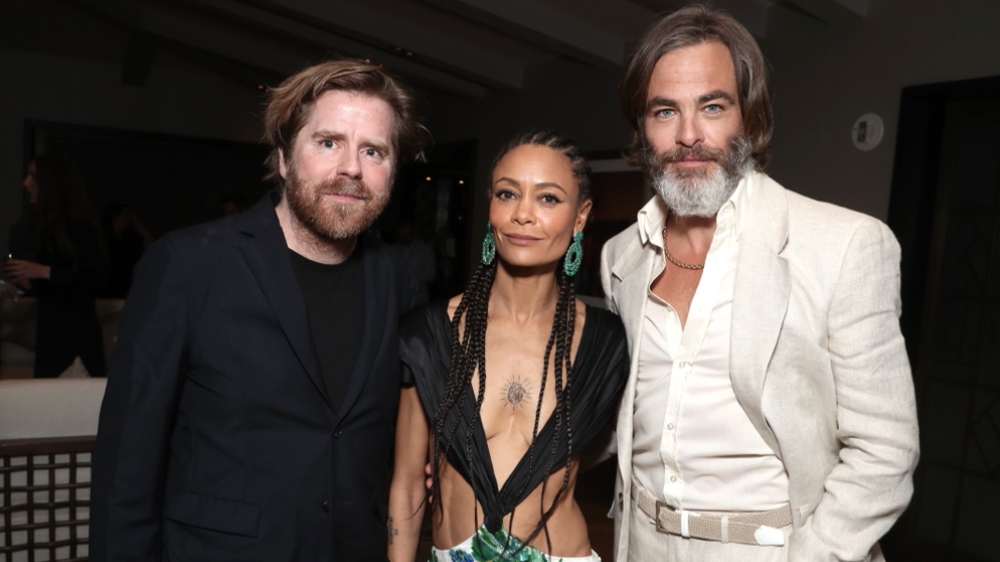
BTL: I have to give you credit because this movie is sexy, which is rare, and I was curious if you worked with an intimacy coordinator.
Metz: For the intimacy scene, it was a quiet, sort of daring sexy scene, which is very important for the story, as I see it. We did have an intimacy coordinator on the set for that, which I thought was a great experience. I don’t know why we haven’t done this anywhere before. It’s almost the same as how you have a stunt coordinator for a stunt sequence, and here you’re doing another physical thing, and I think it freed up the space a lot. Although, in the beginning, it was a little weird for everyone. Here we are and Chris and Thandiwe are naked and there’s another woman in the room helping out and giving comments on how to make things look better, etc., but once you’re in the jive with it, it was a great help for me and I think it actually made everyone take an extra step.
BTL: You’re working with two composers here, and I don’t know if they’re a package deal but can you tell me what you asked of each of them and what they brought to the table?
Metz: Well, they do work together on other projects. We temped some of our sequences with stuff that they’d done together, which was some of the best temp music that we had, and then I just thought ‘well, why not try and collaborate with them?’ And Jon [Ekstrand] is someone I worked with before on Borg vs. McEnroe, and he’s a great composer and he’s a master of action and suspense and sort of big scores, and Rebekka [Karijord] maybe comes from… she hasn’t done as many big movies as Bjorn but she has really got this sort of very sensitive, emotional energy and I just thought, and that’s kind of why they like to work together because I think they give something quite unique to each other and I thought the combination of the two was going to be perfect for this movie and I always knew that more than anything, the music had to reveal this epic, existential longing, and this tragic love story, in a way that cannot become sort of sentimental or too melodramatic, and I think the music really walks a fine line, and it’s instrumental for the film to work that the music is kind of extremely delicate in that sense.
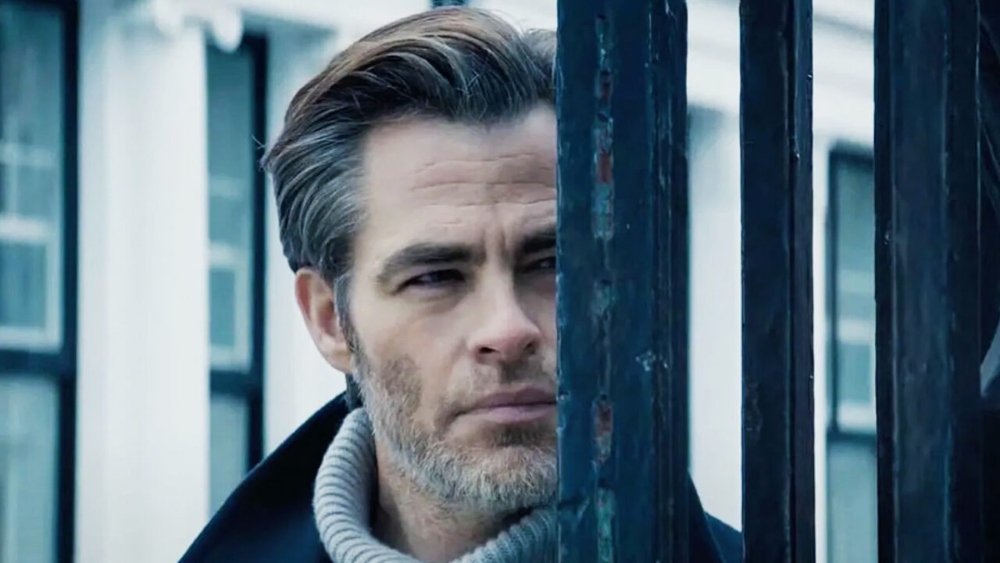
BTL: When you’re working with a first-time feature screenwriter like Olen who also wrote the book, do you have to convince him to kill some of his babies, so to speak?
Metz: Olen was very collaborative and I think he very quickly realized that I need to come in and infuse this with my energy and my vision, and I think he felt, also, that I liked his story for the right reasons and that my input was very useful, and in a way, in the last sort of five months before the actual shoot, we really collaborated on rewriting the script and getting it to the place where it was the best possible script for me to go and shoot, in my view. It was actually a really wonderful collaboration, like, I would write on top of his writing and then he would polish that up and send it back to me and maybe I’d make some last-minute changes. I also like to do readings with actors and challenge the scenes and from that perspective, I think it really reveals a lot of truth about what’s on the page, once the actors come in, and that also created a lot of changes to the script. But the story in its essence is what Olen wrote all the way from the novel and into the script.
BTL: And what’s your take on the meaning of the title?
Metz: I think it comes from like a quote from Ancient Rome or something like that, I believe it’s in Olen’s novel, I think he came up with the title after he’d written the novel, and I like it. It’s like, the enemies you make and which knives are you going to find planted in your back at some point.
BTL: As a director, was there any sequence of scene that was most challenging for you? Was it the stuff on the plane and the terrorism element of this?
Metz: It’s hard to say because sometimes it’s the little things that trip you up and the things you think are going to be difficult that then turn out to be quite easy. I’d day from a technical perspective, shooting with Covid onboard the plane, where we were supposed to have 120 people but we were only allowed about 30 extras, it was a real challenge to make those 30 people look like 120 people, we had to kind of plan that very hard, and we also had to fill up the plane with digital extras down the back, etc. But that took a little thought and effort.
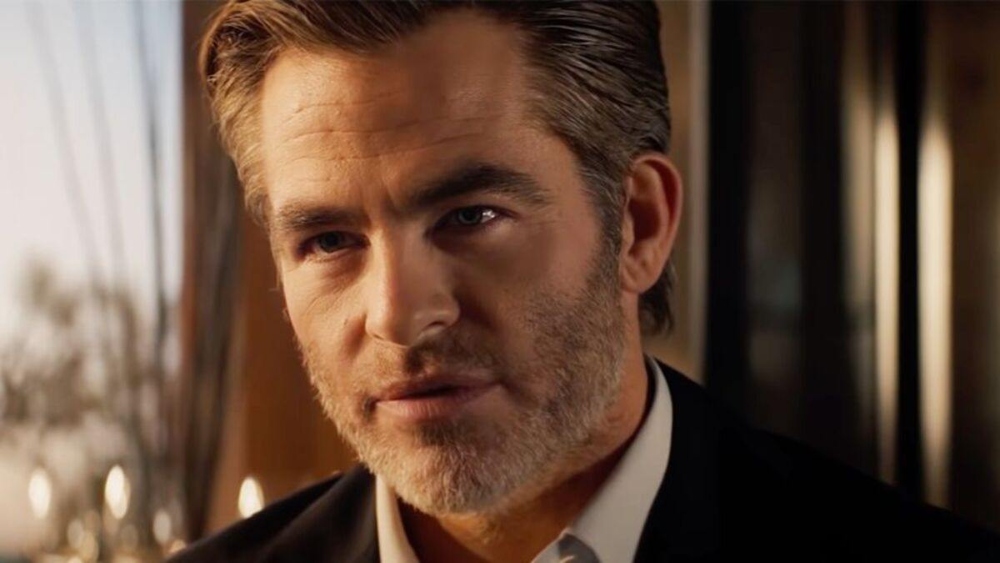
BTL: You’re a Danish filmmaker, right?
Metz: Or, global. I’m Danish, but most of my work right now, honestly, is in the U.S. and the UK.
BTL: Well, I mention it because I’m curious if you saw Flee and if you were a little bummed that it didn’t win one of the three Oscars it was nominated for?
Metz: I’ll tell you a funny story is Jonas [Poher Rasmussen], who directed Flee, and I, actually premiered our first movies together at the same time 17 years ago. Incidentally, we stayed at the same hotel in West Hollywood at the London, when I was premiering this movie and he was over to campaign for the Oscars. And his producer, Monica [Hellstrom], was the woman who arranged that screening for us 17 years ago. So we were certainly all there. We were thinking ‘oh fuck, if we could have fast-forwarded 17 years and seen this, none of us would’ve believed it. But I think it’s a fantastic movie, it’s phenomenal and I’m disappointed it didn’t win, but I had a very strong hunch that Questlove’s movie was going to take it. It’s just so hard to get around that and the important corrective it gives to American history, but Jonas’ film will live on forever for its craft and its kind of masterful storytelling.
BTL: What’s next for you? Are you developing anything?
Metz: I’m working on a couple of things. I don’t know which one is going to sort of happen first, there are a couple of interesting projects that I’m attached to and developing. Let’s see… my wife and I just had a baby who’s now eight weeks, so I promised her I’d take a bit of time.
BTL: Well, you’ve gotta find a role for my boy Harold Torres from ZeroZeroZero.
Metz: Oh, Harold! He’s so good. He’s got a future ahead of him. He’s really good. He was one of the most exciting things for me about making ZeroZeroZero.
BTL: Well, I thought that show was excellent, and congrats on your latest film as well.
All the Old Knives is currently streaming on Amazon Prime Video.





